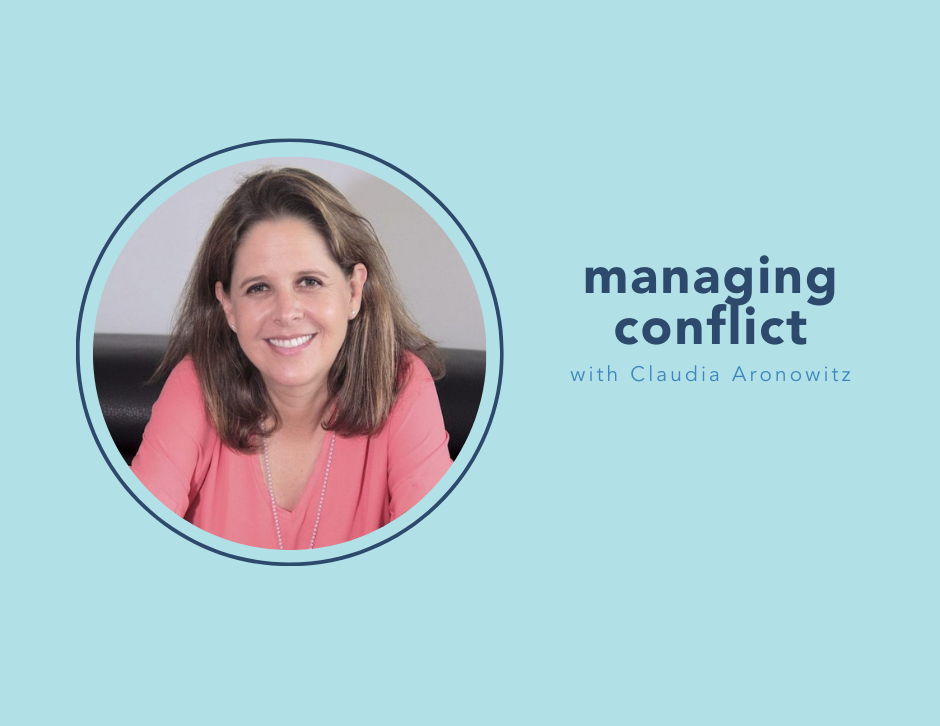Dealing with conflicts often invokes uneasy feelings or even fear. But healthy debates and conflicts can bring thought diversity and new perspectives to the table. So can we stop avoiding conflict and manage them with more ease and courage? On today’s episode, personal development coach and mediator Claudia Aronowitz shares with us practical tips on conflict management.
Myths that Claudia wants us to leave behind
- “I need to know what to say during an argument!” Don’t listen to the other person in conflict with you just so that you can have the perfect come-back line to prove your point. That is not constructive for moving along the conversation. Don’t be afraid of silence in an argument. Give space to listen. Ask more, talk less.
- We need to leave emotion out of the door when we try to de-escalate a conflict. Acknowledging the emotion in a tense conversation is key to de-escalation. When emotion runs high, it is ok to take a time-out break.
Claudia’s tips on managing conflicts
- Acknowledge the other side and agree to disagree. Listen and acknowledge differences of opinion and perspective and stay curious. You do not have to agree with everything, but you can always acknowledge the other person’s point and emotion.
- Understand and anticipate your triggers. Observe what kind of behaviour, signals, and patterns trigger yourself. If you can get a better understanding of your trigger points, you will be able to anticipate when and how you get triggered.
- Paraphrase what the other person is saying and summarize it out loud. If you can paraphrase what the other person engaging in a conflict with you is saying, you are showing the other person you’re actively listening and understanding the person’s point of view. This is helpful for de-escalation in a difficult conversation.
Favourite quotes from this episode
Post your favourite quote on social to share with us!
“There are always two sides in a conflict. Ask yourselves what are the things that you’re willing to do to deal with that conflict. Because if we change, the relationship changes. If we start dealing with conflict differently, the other person on offense will come around and start understanding that something’s shifting.”
“To prepare yourself for a conversation involving conflict, you really need to work through the steps of what do you want to say? How are you going to listen? How are you going to get the information you need? And in a situation involving power dynamics, do you need somebody else to come to the meeting with you?”
Subscribe & Review in iTunes
Are you subscribed to the podcast? If you’re not, I want to encourage you to do that today. We have even more great interviews coming and I don’t want you to miss an episode. Click here to subscribe in iTunes!
Resources from this Episode
The Good Partnership
CharityVillage
Claudia Aronowitz
Values Exercise Worksheet












